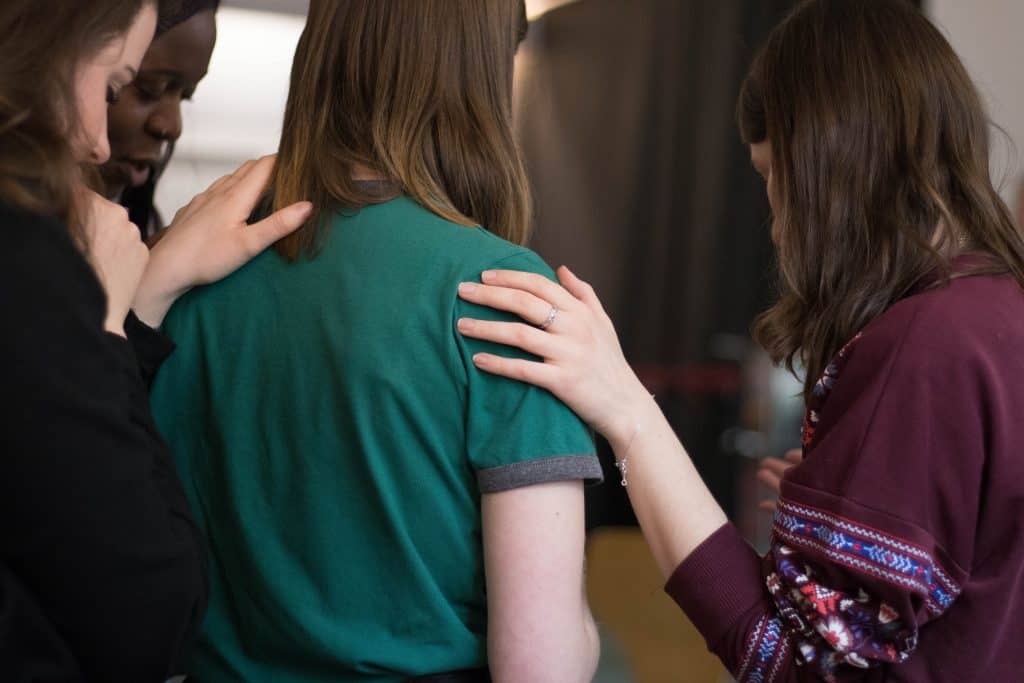⏱️ Estimated Reading Time: 6 min read
Loss is a part of all of our lives. Sometimes it comes in the form of losing a parent, a spouse, a relative, a friend, a colleague, or even a pet. It can come from financial loss, loss of property, loss in the way of sickness, or an injury. At times, we experience loss when people leave, abandon, or mistreat us. We all know aspects of loss, but how we cope and deal with loss is varied and quite complicated. We can’t control how others treat us, but we have a choice regarding how we respond to such situations. These realities are certainly not anything new, but reflecting on different ways in which we can be renewed, encouraged, and comforted by looking to Christ can be extremely beneficial in the midst of life’s challenges and hardships. Doing so can bring us toward meaningful healing so we can move forward and grow as God continues to work His purposes in our lives.
When loss comes to us, we often feel alone and scared. We miss and mourn whomever or whatever we have lost. We may experience anxiety, panic, depression, or even anger. We may feel frustration, resentment, or emptiness. This very real (sometimes sudden) shift in our reality, combined with the ensuing changes and feelings of deep sadness and pain, do not necessarily end. This is where God can work in our lives and powerfully become our true comfort in those troubled times.
When we are hurt, we often look to things, people, or activities to numb our pain. We often search out things as a sort of bandaid to help us temporarily function and move forward. Some of these things are not bad, while other things are dangerous and harmful to us, especially in our walk with the Lord and in upholding a standard of holiness. Some people turn to food, alcohol, or drugs in times of pain or loss. Others turn to busyness, even to the point of workaholism, to avoid pain. Some people travel to find an escape. Others turn to relationships and sex to help them feel less pain with the loss they have experienced. Many of these things can provoke other issues, problems, and concerns, and some can be blatantly sinful for Christians. In that case, we must repent, turn away from sinful behavior, and return to a rightful heart attitude through God’s grace by asking the Lord to forgive us and guide us in these deepest moments of sadness in our lives.
Matthew 11:28-29 is a helpful reminder for us on how to approach the Lord when we are weary and heavy-laden: “Come to me, all who labor and are heavy laden, and I will give you rest. Take my yoke upon you, and learn from me, for I am gentle and lowly in heart, and you will find rest for your souls.” This is powerful. He is the true rest for our hearts and souls. But if you’re like me, I sometimes need to read those verses with fresh eyes.
I appreciate Alistair Begg’s thoughts on these verses, where I heard him mention in a recent sermon the importance of focusing on the verb “take.” Jesus is inviting us to take hold of His yoke. How do we do that? In coming to Him, praying, and spending time with Him in His Word, we learn over time through the weeks, months, and years that He really can give us peace amidst our loss, pain, and sadness. It is not an overnight process. Over time, we realize God’s real peace when we integrate these habits into our daily lives in moments of sadness and grief.
We also see another aspect of finding comfort in 2 Corinthians 1:4 when we read about the reassurance of Christ: “who comforts us in all our affliction, so that we may be able to comfort those who are in any affliction, with the comfort with which we ourselves are comforted by God (ESV).” What an awesome reality that we can be assured of comfort from God. What an amazing thought to be loved this way by our God! But in order to be comforted by someone, the implication is that we must be near them. If we are comforted by a friend, we must talk with them, spend time with them, and communicate with them. The same is true of our Lord. We cannot be upset when we feel that the Lord isn’t comforting us or that He isn’t there for us when we aren’t committed to spending time with Him to get to know Him better. It is often said that we tend to look to God as a last resort for help when He should be the very first place we go in times of crisis and pain.
Perhaps one of the most powerful examples of the reassurance we have in times of loss is remembering the pain and suffering that Jesus experienced. My friend Eric recently reminded me of this in thinking of God’s saving work on the cross. In Matthew 27:46, Jesus says, “My God, my God, why have You forsaken me?” We know that as the propitiation for our sin, Jesus experienced suffering on the cross in a way no one could ever imagine. Through this experience and the profound understanding of this action, we can trust Him to understand and help us in our pain, no matter how great or how much we are suffering.
Finally, when we keep the important aspect of God’s sovereignty in mind, we can adjust our focus even in the midst of our sadness. I’m reminded of a Charles Spurgeon quote that says, “If you cannot trust God for the temporal, how dare you trust him for the eternal?” This convicting yet meaningful quote gives substance to the importance of truly trusting God as sovereign. In any and all circumstances, whether joyful or sad, we can know with all assurance that the very God who holds our eternal life in His hands is the same God who can be trusted even in the difficult times we experience here on earth. We will be impacted by pain in this life, but the pain does have an ending, much like storms before a rainbow. For the Christian, we will face only joy, peace, and absolute wonder one day when we are with the Lord in Paradise.
Until then, let us remember that even as we experience loss, He is ever near, He will never leave us (Hebrews 13:5), and He always works for our good and His glory (Romans 8:28). Our true rest depends on taking hold of and believing these principles. May we believe in them and allow these truths to help us heal as we navigate difficulties and loss in our lives.




